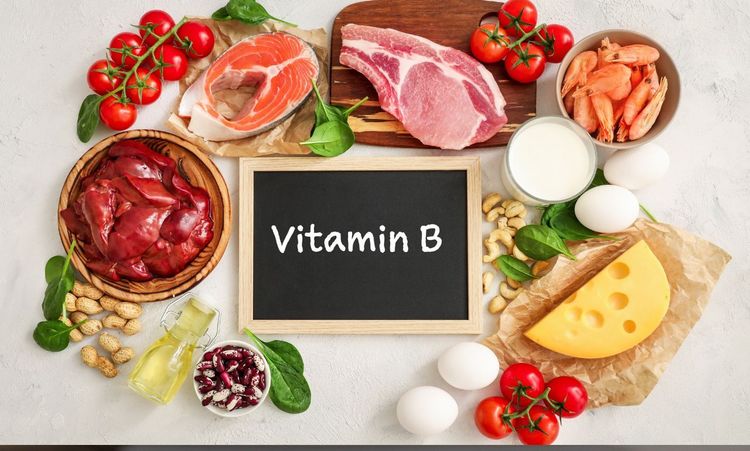Who would have believed two simple ingredients in your pantry could be a dynamic health duo? Chia seeds and coconut oil don't sound like the most likely pair, but they are a nutritional powerhouse that can transform your health in ways you never imagined. This powerhouse combines chia seeds' omega-3 fatty acids with coconut oil's medium-chain triglycerides (MCTs). While every ingredient is wonderful in its own right, something special happens when you combine them. Let's glance at the 10 unexpected benefits that could convince you to add this simple combination to your daily routine.
1. Boost Your Energy
The chia seed and coconut oil combo might be precisely what you need. This natural energy blend works on multiple levels to keep you going strong throughout the day.
Chia seeds contain protein, fiber, and omega-3 fatty acids that release sustained energy. Unlike sugary snacks that cause energy spikes and crashes, chia seeds deliver a steady stream of nutrients that stabilize your energy levels. When combined with coconut oil, which contains medium-chain triglycerides (MCTs), you get a quick source of energy that your body can efficiently convert into fuel.
2. Accelerates Weight Loss

Chia seeds are known for their incredible ability to absorb liquid – up to 10 times their weight! When consumed, they expand in your stomach, helping you feel fuller longer and potentially reducing your overall calorie intake. The high fiber content also helps regulate digestion and keeps hunger at bay.
Coconut oil contains MCTs that have been shown to boost metabolism and increase fat burning. Unlike other fats that are stored in the body, MCTs are quickly converted into energy, making them less likely to be stored as fat. Additionally, coconut oil has been found to reduce appetite and curb cravings, which can be especially helpful when you're trying to lose weight.
3. Control Blood Sugar
Chia seeds contain a significant amount of soluble fiber, which slows down the digestion and absorption of carbohydrates. This results in a more gradual release of glucose into the bloodstream, preventing the sharp spikes and crashes that can lead to energy dips and increased hunger.
Coconut oil plays its part by improving insulin sensitivity. The MCTs in coconut oil can help your cells respond better to insulin, allowing glucose to enter more efficiently. This improved insulin sensitivity is beneficial for preventing and managing type 2 diabetes.
4. Hydration Support
Chia seeds have an extraordinary ability to absorb water – up to 10 times their weight in liquid. When consumed, they form a gel-like substance in your digestive tract that helps your body retain moisture longer. This slow-release hydration can be particularly beneficial during intense physical activity or hot weather.
Coconut oil complements this hydrating effect by supporting cell membrane health. Healthy cell membranes are better at retaining water and nutrients, which helps maintain proper hydration at the cellular level.
Combining chia seeds' water-retention properties and coconut oil's cell membrane support creates an internal hydration system that works from the inside out. This can be especially helpful for athletes or anyone who struggles to stay adequately hydrated throughout the day.
5. Support Heart Health
The chia seed and coconut oil combination offers several benefits for cardiovascular health. Chia seeds are rich in omega-3 fatty acids, particularly alpha-linolenic acid (ALA), which has been shown to reduce inflammation and lower the risk of heart disease. These tiny seeds also contain fiber that can help reduce harmful cholesterol levels and increase good cholesterol.
While coconut oil has been controversial due to its saturated fat content, research suggests that the type of saturated fats in coconut oil – medium-chain triglycerides (MCTs) – may improve heart health markers. MCTs have been shown to increase HDL (good) cholesterol and improve the ratio of total cholesterol to HDL, a better predictor of heart disease risk than total cholesterol alone.
6. Benefits for Skin Health
Chia seeds are packed with antioxidants that help fight free radical damage, one of the leading causes of premature aging. They also contain omega-3 fatty acids that help maintain the skin's moisture barrier and reduce inflammation, which can help with conditions like acne and eczema.
Coconut oil is renowned for its moisturizing properties and contains lauric acid, which has antimicrobial effects that can help combat acne-causing bacteria. It also has natural SPF properties (though minimal – always use proper sunscreen) and can help reduce the appearance of fine lines and wrinkles.
7. Enhanced Digestion
This fiber acts as a prebiotic, feeding the beneficial bacteria in your gut and promoting a healthy microbiome. The soluble fiber in chia seeds also absorbs water and forms a gel-like substance that can help ease constipation and promote regular bowel movements.
Coconut oil contains medium-chain fatty acids that are easier to digest than long-chain fatty acids in many other oils. These MCTs don't require bile salts for digestion and are absorbed directly into the portal vein, reducing the workload on your digestive system. Coconut oil also has antimicrobial properties that help balance gut flora and combat harmful bacteria.
8. Antimicrobial Benefits
In a world increasingly concerned with immunity and protection against harmful microorganisms, the natural antimicrobial properties of the chia seed and coconut oil combination are particularly valuable.
While chia seeds don't have strong antimicrobial properties, they support your immune system through their high antioxidant content and ability to reduce inflammation. A strong immune system is your body's first defense against harmful microorganisms.
Coconut oil, on the other hand, contains lauric acid, which has well-documented antimicrobial properties. When consumed, lauric acid is converted to monolaurin, a compound that can help fight viruses, bacteria, and fungi. This makes coconut oil a powerful ally in maintaining health and preventing infections.
9. Improved Brain Function

Your brain is famished for its essential nutrients, and the coconut oil and chia seed mix deliver brain-stimulating benefits that may enhance brain activity and prevent loss with age.
Chia seeds are rich in omega-3 fatty acids, primarily alpha-linolenic acid (ALA), which is converted to EPA and DHA in the body. Omega-3s play a significant role in the brain, enhancing memory, learning, and protection against cognitive decline. Chia seed antioxidants also help combat oxidative stress that may damage brain cells in the long term.
Coconut oil contains medium-chain triglycerides (MCTs), which are rapidly metabolized into ketones, the brain's secondary fuel. Ketones could improve cognitive performance, particularly in people with impaired glucose metabolism, such as Alzheimer's and diabetes.
10. Hormone Balance
The delicate balance of hormones in your body affects everything from your mood and energy levels to your metabolism and reproductive health. The chia seed and coconut oil combination offers support for hormone balance that can benefit both men and women.
Chia seeds contain lignans, plant compounds with weak estrogenic effects that can help modulate hormone levels. They also provide essential fatty acids, which are the building blocks for hormone production.
Combined, these ingredients create a hormone-supporting mixture that addresses multiple aspects of endocrine health. The lignans and essential fatty acids from chia seeds provide the raw materials and modulatory effects, while the cholesterol and MCTs from coconut oil support hormone production and thyroid function.
For women experiencing PMS or menopausal symptoms or for men looking to support testosterone production, this combination could be a valuable addition to your diet.
What Not to Mix with Chia Seeds?

While chia seeds are incredibly versatile, there are a few combinations to avoid for optimal health benefits:
- Highly processed foods: Mixing chia seeds with sugary, processed foods negates many health benefits. The high sugar content can spike blood sugar levels, counteracting the chia seeds' blood sugar-stabilizing effects.
- Excessive amounts of dried fruit: While dried fruits are nutritious in moderation, they're also high in sugar and calories. Mixing large quantities with chia seeds can turn a healthy snack into a calorie bomb.
- Raw egg whites: Some people add chia seeds to raw egg whites for protein shakes, but this isn't recommended. Raw egg whites contain a protein called avidin that can interfere with biotin absorption, and raw eggs always carry a risk of Salmonella.
- Certain medications: If you're taking blood thinners or drugs for diabetes or high blood pressure, consult your healthcare provider before adding chia seeds to your diet, as they may interact with these medications.
Coconut oil, on the other hand, mixes well with most foods but should be used in moderation due to its high-calorie content.
Conclusion
The combination of chia seeds and coconut oil offers an impressive array of health benefits that extend far beyond essential nutrition. From boosting energy and supporting weight loss to enhancing brain function and balancing hormones, this simple mixture can be a powerful addition to your daily routine.
What makes this combination particularly special is how the two ingredients complement each other. The protein, fiber, and omega-3s from chia seeds pair perfectly with the MCTs and lauric acid from coconut oil, creating a synergistic effect that maximizes both benefits.
ALS0 READ: What to Expect After Ketamine Treatment for Depression




